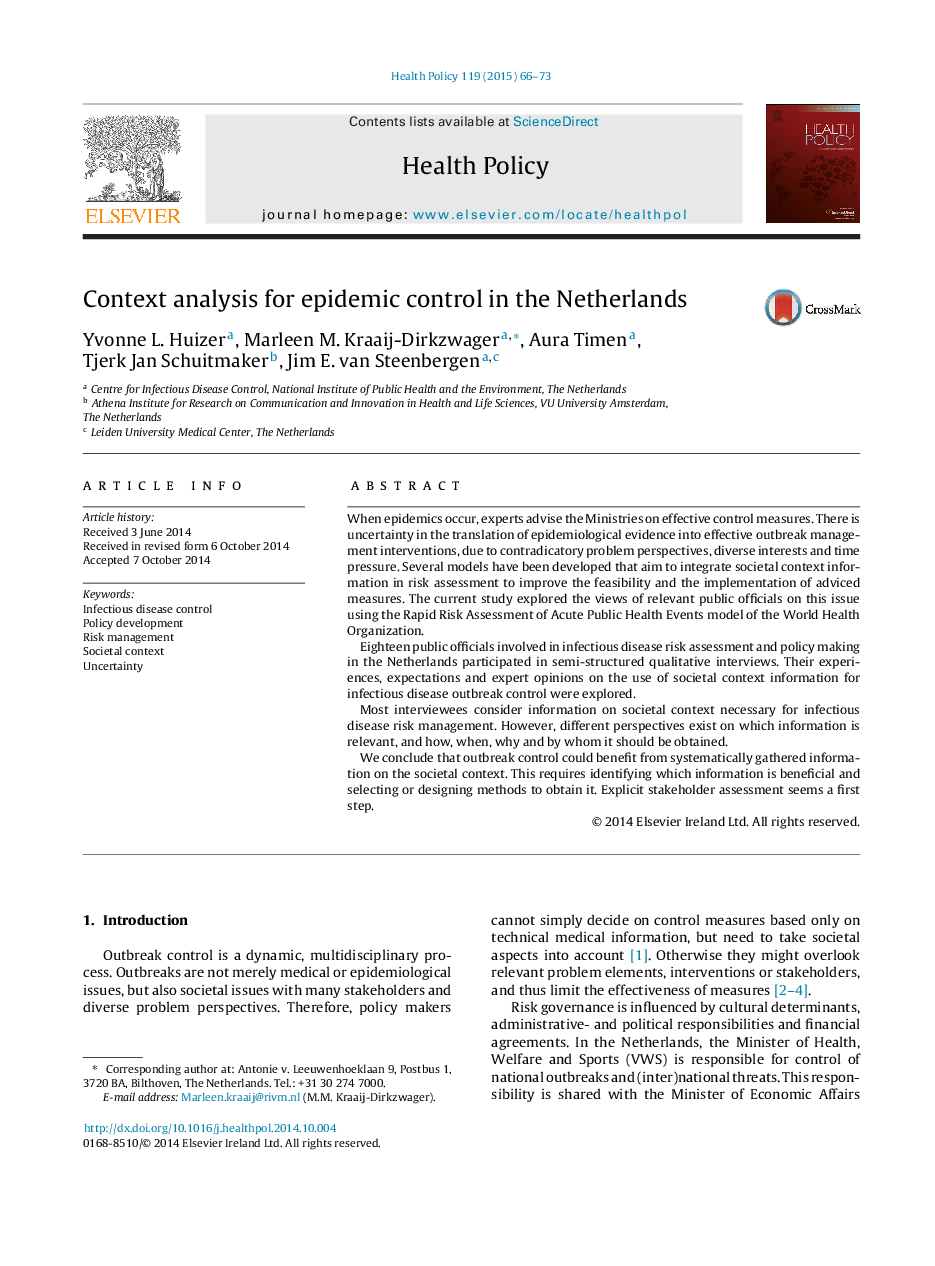| کد مقاله | کد نشریه | سال انتشار | مقاله انگلیسی | نسخه تمام متن |
|---|---|---|---|---|
| 4197793 | 1278999 | 2015 | 8 صفحه PDF | دانلود رایگان |
• Infectious disease outbreaks are not only medical problems but also societal issues.
• Many actors have a role to play in a dynamic situation with many uncertainties.
• Context-analysis can strengthen the risk assessment and outbreak control.
When epidemics occur, experts advise the Ministries on effective control measures. There is uncertainty in the translation of epidemiological evidence into effective outbreak management interventions, due to contradicatory problem perspectives, diverse interests and time pressure. Several models have been developed that aim to integrate societal context information in risk assessment to improve the feasibility and the implementation of adviced measures. The current study explored the views of relevant public officials on this issue using the Rapid Risk Assessment of Acute Public Health Events model of the World Health Organization.Eighteen public officials involved in infectious disease risk assessment and policy making in the Netherlands participated in semi-structured qualitative interviews. Their experiences, expectations and expert opinions on the use of societal context information for infectious disease outbreak control were explored.Most interviewees consider information on societal context necessary for infectious disease risk management. However, different perspectives exist on which information is relevant, and how, when, why and by whom it should be obtained.We conclude that outbreak control could benefit from systematically gathered information on the societal context. This requires identifying which information is beneficial and selecting or designing methods to obtain it. Explicit stakeholder assessment seems a first step.
Journal: Health Policy - Volume 119, Issue 1, January 2015, Pages 66–73
